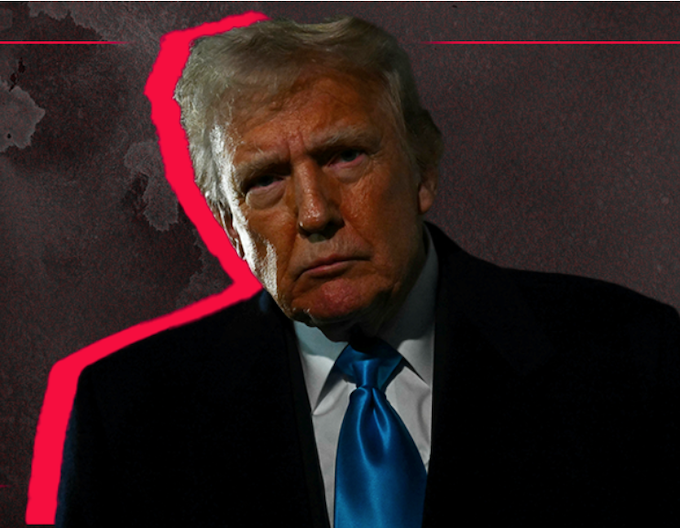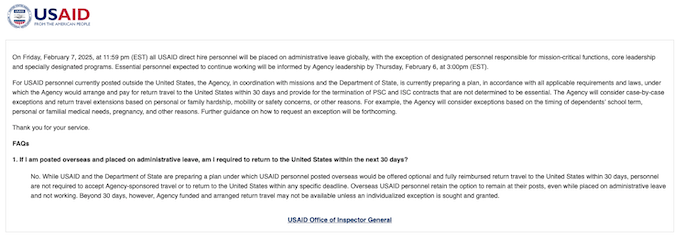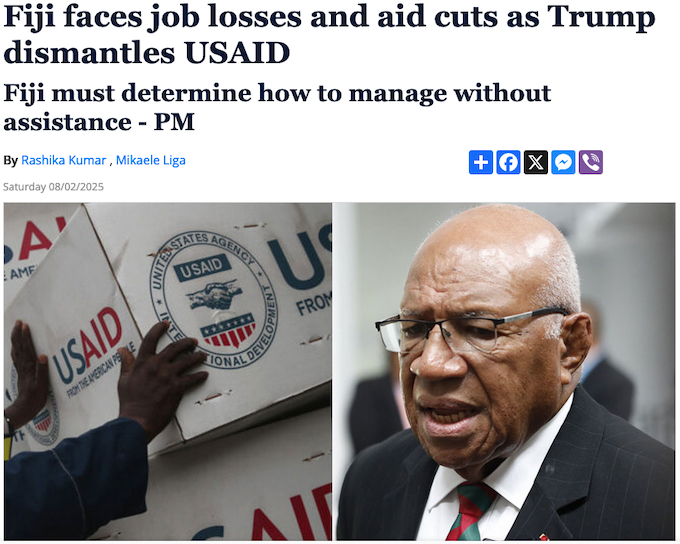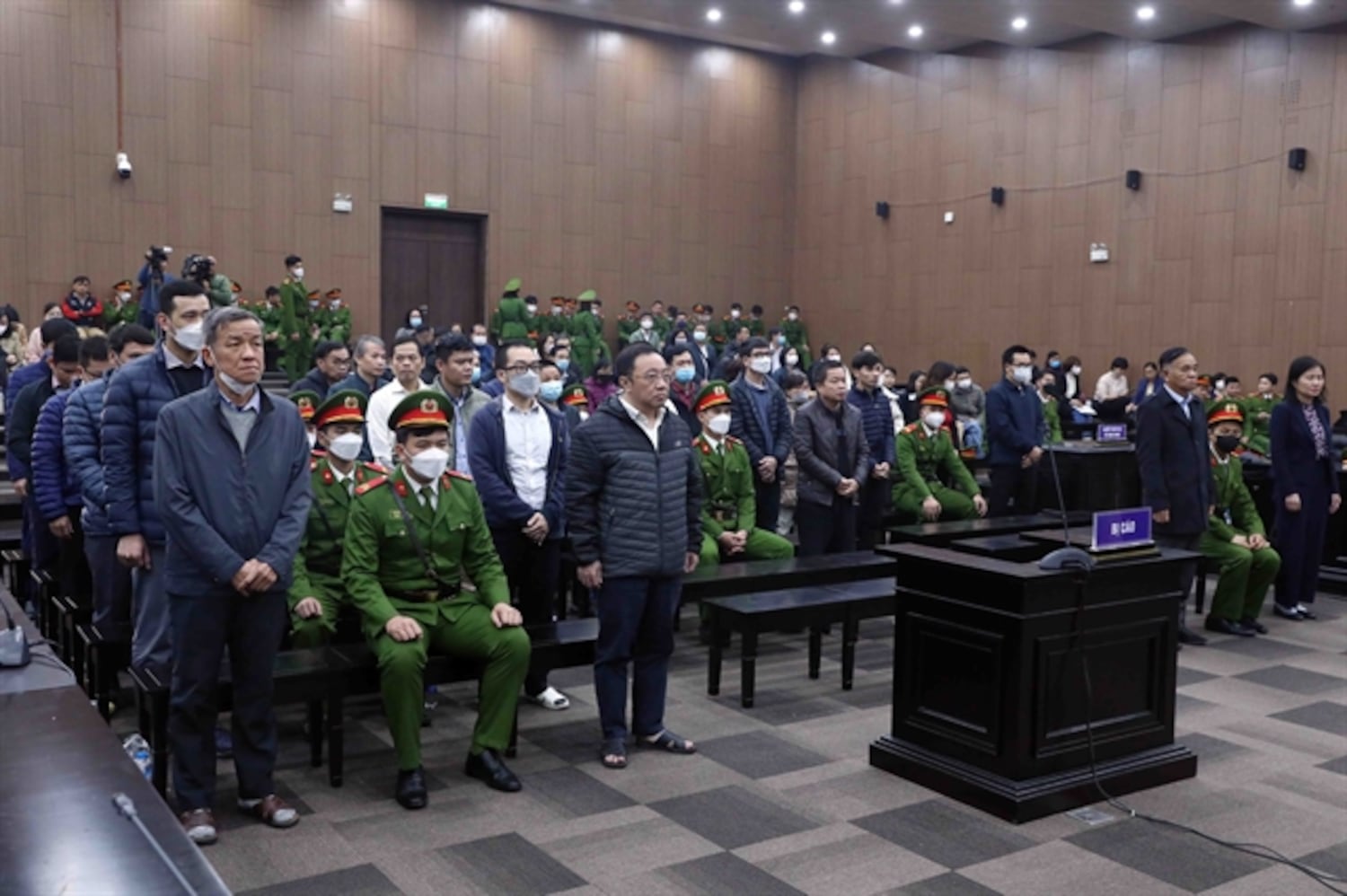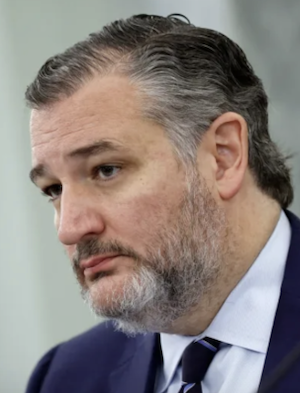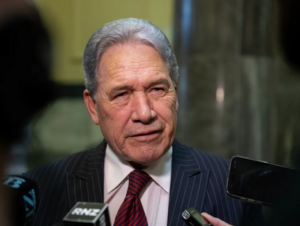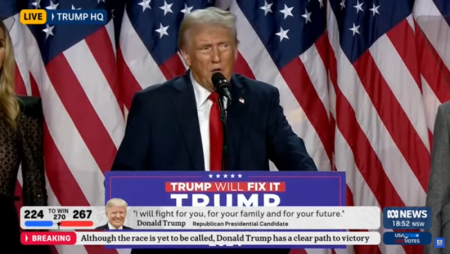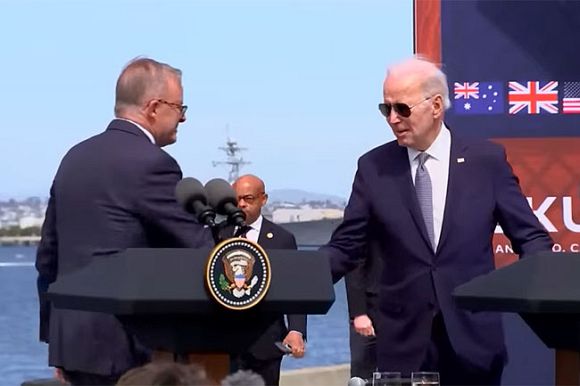Two elected members were suspended from the KPFA Local Station Board (LSB) in a closed door session on November 16, 2024. It was a “show trial” that was not for show, not to be seen or even whispered about — a skeleton for the board’s closet, and an insult to the “free speech radio” spirit of KPFA.
This was a Zoom session, a meeting in cyberspace; twenty two board members attended; four Pacifica National Board directors were here as observers, and there were several technicians and some others, in all, thirty people. The accused persons were Elizabeth Milos and Steve Zeltzer. Both were elected to this Local Station Board (LSB) by the listener-subscribers of KPFA, and this hearing should’ve been open to the public — especially since the “Protector” group had already publicized it as a campaign issue. This closed hearing cannot rightfully be kept secret, and as a board member present at that session, I’m writing this account.
It wasn’t funny to us who sat through it, but who knows how others may see it. There was irony, unintended humor, and an interesting cast of characters.
We see a defendant, the indomitable Elizabeth Milos and others in action. The session opens with Elizabeth challenging Christina Huggins, first about the audio recording. Christina said there wasn’t going to be any audio recording; Elizabeth told her we’d then record it ourselves, which we did, or I did anyway, and from it made a transcription. Christina said we didn’t have her permission, and Elizabeth then challenged Christina’s eligibility to chair the session.
“The chair of the LSB is not going to be present?” said Elizabeth Milos. “So who is acting chair?”
“I am the chair for this meeting,” replied Christina Huggins.
“You’re not a member of the board,” Elizabeth reminded her. “You can not–”
And Christina muted her. This being a Zoom meeting, the person who runs the meeting can press a mute button and silence board members.
Elizabeth Milos unmuted herself. “You’re not a delegate. To be able to preside over this kind of –”
Christina Huggins muted her again and said. “The chair does not have to be a delegate, per the bylaws.”
“The ones who don’t have to be a delegate are the treasurer and the secretary, but the chair does,” Elizabeth explained, referring to Article Seven, Local Station Boards, Section 5.
“You will be removed from the room if you do not come to order,” Christina warned.
Steve Zeltzer spoke up “You’re not a delegate, Christina.”
You will be removed as well. I’m the chair. The chair does not have to be a delegate.”
“Show us in writing where it says the chair does not have to be a delegate,” said Cheryl Davila.
Christina Huggins overruled them and presided as the self-appointed chair.
Christina Huggins is a leader of the “PROTECTORS” group — the “Huggins Faction” — which, on KPFA’s Local Station Board (LSB), represents the station’s power clique and management. Although Huggins was a former board member, and was again elected for a term beginning in December 2024, she was not a delegate at the time of this session. Her group has a 2/3rds majority which enables them to set the agenda, and this was what they set for this day in November 2024. So we see the majority putting two members of the minority on trial, a “disciplinary hearing,” Christina Huggins called it.
Defendant Elizabeth Milos is a Chilean-American, a Spanish/English medical interpreter in her day job. She’s also a labor and human rights activist. Her co-defendant Steve Zeltzer is the host of Work Week Radio. Both are affiliated with the RESCUE PACIFICA group, which advocates keeping the Pacifica network intact and preserving its seventy-five year antiwar tradition.
The “trial” was ostensibly about an incident on July 31, 2024, where the defendants, Elizabeth Milos and Steve Zeltzer, held a speak-out in front of the KPFA studio in Berkeley. KPFA’s Business Manager Maria Negret came out of the building and angrily confronted them. Steve Zeltzer inadvertently touched Maria Negret’s hand — hence a charge of “assault and battery.”
“He’s lucky he didn’t do it to me,” growled board member Fred Dodsworth, who played the role of “Prosecutor.” Fred describes himself as “Loud and Proud,” and he certainly is loud, egotistical, and takes himself very, very seriously. Fred Dodsworth was perfectly cast for a leading role in this sort of thing. His mission was to seek justice for the supposed “victim,” Business Manager Maria Negret — who was not present.
Steve Zeltzer and Elizabeth Milos had requested that Maria Negret be there as a witness. And Jim Lafferty, attorney for the defendants, asked why Maria was not present at this hearing?
“She’s not the accuser,” said Christina Huggins, the self-appointed chair.
“But she filed a police complaint,” the defense attorney reminded the chair. “She filed a police complaint of assault and battery, which is a charge against one of these people. And yet, she’s not relevant for today?”
The chair seemed unable to give a satisfactory explanation for Maria’s absence. It appeared that Maria Negret did not wish to accuse Steve Zeltzer in a hearing where she could be cross examined.
There was a police report, and Dodsworth flashed it on the screen. But only the seal of the Berkeley Police Department was seen. The contents could not be shown, because, Dodsworth told the hearing, “The actual police report stipulates that it is not for distribution.”
Not for distribution? Strange. We had obtained a copy of the police report — presumably the same one mentioned by Dodsworth. It did not even contain the name of the suspect or a description of the “assault.”
What Dodsworth did have was a video of the July 31st incident. But it was actually more embarrassing to Maria Negret than to Steve and Elizabeth. In it we see Maria with her hands on her hips, aggressively yelling and scolding. And the assault? The video doesn’t show it, not until you slow it down to frame by frame, and finally there is a frame where for a microsecond Steve touches Maria’s hand. That was the evidence of the supposed “assault and battery” on which Dodsworth based his case.
“Yeah, we’ve been told this was an assault and battery,” said board member Anthony Fest. “If this really was an assault, why didn’t you contact the DA’s office and request that they prosecute Steve Zeltzer? Most likely because you wouldn’t want to be laughed at — a fraction of a second of inadvertent contact when the business manager was actually the initiator of the confrontation.”
“If this is assault and battery, then every time I’ve gotten on BART at rush hour, I’ve been assaulted and battered,” said another LSB member, James McFadden. “I was most amused by the prosecutor’s comment that if Zeltzer had done that to him, he would have –, and then didn’t finish his sentence. He would have what? Assaulted and battered Zeltzer?”
Undaunted, “Prosecutor” Dodsworth bravely and resolutely launched into presenting his case. This was Fred Dodsworth’s hour upon the stage, and all eyes were on him as he spoke:
“The evidence against Mr. Zeltzer is undeniable. You saw it with your own eyes. . . . This was no accidental contact. This was no inadvertent brush. This was an attempt to wrest control of her body from herself.”
And reminding us that Maria Negret is a Latina, Dodsworth added, with righteous indignation, “There’s additional significance when this action is taken against a woman of color.”
“Excuse me,” Elizabeth Milos interrupted him. “There’s a point of order.”
And this is where we learned that while presenting his case against Steve Zeltzer, Prosecutor Dodsworth had kicked delegate Cheryl Davila — the only black woman in this Zoom session — out of the meeting.
“I’m talking. Shut up!” Dodsworth barked.
The not easily silenced Elizabeth Milos spoke again, “One of our members, Cheryl Davila is not being allowed in.”
“You’re out of order!” the self-appointed chair upheld the prosecutor.
Prosecutor Dodsworth continued his speech, explaining that to excuse Steve Zeltzer “would be a betrayal of the values we stand for and erode that trust KPFA has built within staff and community, particularly among women and people of color.”
Elizabeth Milos and Steve Zeltzer continued to raise their voices. “Cheryl Davila, who is a black, the only black board member of the KPFA Local Station Board, has been excluded!” Steve said.
“You’re out of order, Mr. Zeltzer,” said the self-appointed chair.
Eventually Cheryl Davila was readmitted to the meeting. After returning, Cheryl said: “Dodsworth has disrespected me on numerous occasions . . ., and today I was kicked out of the meeting. Wasn’t let back in for some time. I don’t even know why I was kicked out. . . . It is a kangaroo court. You guys make the rules, and we have to go by them.”
Unlike courtroom dramas and other events that take place in a physical room or hall, this was a Zoom session where everyone except the speaker is muted, and laughter, gasps, jeers, boos, and applause were not heard. But the attending board members were allowed brief comments.
Since Dodsworth was making such an issue of respect for KPFA employees and staff, particularly those of color, Donna Carter and I reminded him of the time he wrongfully criticized KPFA journalist Frank Sterling who was arrested by the Antioch police. Frank Sterling is a Native American; he won his case, and a financial settlement from the police.
Pausing in his prosecution, Fred Dodsworth took time to reiterate his attack on the KPFA journalist. “Mr. Sterling did not behave as a reporter,” said Dodsworth. “He behaved as an activist.”
Frank Sterling had stepped in to prevent a woman from being beaten. Many journalists have done that in various ways. Amy Goodman, Gary Webb, Norman Solomon, among them. Frank Sterling is a journalist and he is an activist. That is very much in the KPFA tradition.
Defense Attorney Jim Lafferty said this earlier in this session, but it fits here: “Having been a long time admirer of this radio station, to be present at this, … and to observe it taking place is truly sad to me. It has no resemblance to due process. An Alice in Wonderland trial would be an improvement… This hearing is … a shamefully obvious political move on the part of a majority of this board, to get rid of some people whose opinions annoy them.”
The opinions of Steve Zeltzer and Elizabeth Milos were indeed annoying to the “Protector” group. Steve told the hearing;
“The [July 31st event] was about the monitorship of Pacifica. And this monitorship was brought about actually because members of this KPFA Station Board went to the FCC [Federal Communications Commission] and called on the FCC to take away the license of WBAI. Now I think that’s a betrayal of the interests of Pacifica.
“They did that. They continue to support that. And now that monitorship means that a new FCC Chairman appointed by the President Trump could immediately shut down Pacifica because it’s already under monitorship.”
How the Trump Administration may handle the monitorship (“Consent Decree”) remains to be seen. But there are also other threats on the horizon. Congress is currently working on bipartisan legislation to crack down on alternative media.
Co-defendant Elizabeth Milos, the only witness of the July 31 incident present at this hearing, was charged with two offenses. The first was: “making inaccurate statements in a public meeting about the alleged assault and battery.”
Elizabeth Milos had publicly refuted the accusation. And now at this hearing Elizabeth said, “The video proves the fact that it was not [Steve Zeltzer’s] intention to grab anybody.” Thus, by disputing Fred Dodsworth’s dubious version, Elizabeth had, in Dodsworth’s view, obviously committed a truly heinous offense.
The second charge went to the heart of the matter. Elizabeth had criticized the station’s Business Manager Maria Negret. That is, Elizabeth had found documents showing that during a lawsuit by former Pacifica Executive Director John Vernile against the Pacifica Foundation, Maria Negret presented a deposition on behalf of the opposing side. And Christina Huggins had shared confidential information with the opposing counsel. That lawsuit cost KPFA $305,000.
“I have been involved in exposing this fraud.” Elizabeth Milos told the hearing that she’d shown Maria Negret’s publicly available deposition. “That would most likely be part of the reason why I’m being silenced,” Elizabeth said, and added, “I again object for the record that your Christina Huggins is not [currently] a delegate and also has serious conflict of interest.”
Prosecutor Dodsworth didn’t actually dispute Elizabeth’s allegations against Maria Negret and Christina Huggins. He and Huggins only stipulated that such matters should be discussed in only closed sessions of the LSB. Well, they had a point there. The board should be able to discuss and resolve personnel issues in executive sessions. Unfortunately, it’s impossible to discuss such issues with this board dominated by the offenders — the “Protector” group. Only one point of view is allowed.
And that leads directly to what this “trial” was really about — the role of the Local Station Board. The Rescue Pacifica group, with which Elizabeth and Steve are affiliated, assert that there are times when board members need to ask questions. The above mentioned issues should concern the LSB. Another example, one from January 2020: when it was discovered that property taxes hadn’t been paid on the KPFA’s studio for six years, and the Alameda County tax office was about to seize the building and auction it off to collect the unpaid taxes, it was proper for the board to be asking the station’s general manager how that happened. In fact, according to Pacifica Bylaws, the LSB is required to do a yearly evaluation of the station’s manager, but that hasn’t been done for over seven years now. The “Protector” group, who have a board majority, have prevented those evaluations.
The “Protector” group sees it as its job to protect the station’s management from the embarrassing questions that the Rescue Pacifica people ask. Protector Sherry Gendelman said at this hearing: “Oversight of employees is not the role of the LSB.”
“We should not interfere with the operation or the employees at the station at any time,” Gendelman stated specifically. Which is a an interesting comment coming from the person who petitioned the FCC to investigate WBAI, the Pacifica station in New York. Before that “Protectors” were involved in the month-long takeover of the NY station in 2019. There certainly are problems at WBAI, but the Protectors’ “solutions” have done more to sabotage than to help the New York station.
The differences between the two groups do seem irreconcilable. Rescue Pacifica struggles to preserve the network and its antiwar programming, while the Protectors group supports a management clique that gives nine hours of KPFA’s airtime each week to Ian Masters, a show host who attacked Mumia Abu Jamal, and who promotes a pro-military vision for our country. This struggle has gone on for years, with people looking to find common ground — which is hard to find.
In the midst of this day’s turmoil, Defense Attorney Jim Lafferty, who is a former general manager of KPFK in Los Angeles, expressed a plea for unity and warned of the danger:
“One of the reasons why I’m so utterly appalled by having to be here today is because Pacific has enemies!” For God’s sakes, not Steve and Elizabeth! No, our enemies. My enemies, your enemies. . . . They are, of course, those who are about to rule this country — who in Project 2025 spell out that they want to shut down this entire network. And yet, here we sit, doing what we’re doing today,” Jim Lafferty said. “Have we all lost our minds?”
“Well, I simply want to then say that I plead with all of us to remember that we’re comrades,” Jim Lafferty continued. “And that we please can get back to the business that we should be at, because otherwise the bright future of this station is going to be removed from us. In fact, the whole damn thing is going to be removed!”
Two of the “Protectors” broke ranks and voted against the suspension, but we don’t know who they were, because the ballots — like everything else in the meeting — were secret. And there were two Protectors who did not attend this session. Nevertheless, Dodsworth, Huggins and their crew still had a simple majority which found Elizabeth Milos and Steve Zeltzer “guilty” of all charges and suspended them from the LSB for eighteen months. (To fully remove them from the board would’ve required a 2/3rds vote.)
What we saw that November day was a power grab, rather crude and even clumsy, but nevertheless very effective. Board members elected by the listeners were removed by the majority faction. Who’s next? It could be anyone who raises uncomfortable issues. It’s sad and discouraging to see this happening at KPFA 94.1 FM, which for so many years has been a source of information, music, inspiration, encouragement and sense of community.
But what does this mean for KPFA listeners who may not take much interest in the details of board politics?
Just this: the ones who run the show are the ones who determine the programming. While many excellent shows remain, in recent years we’ve seen a drift towards echoing the corporate media and security state propaganda, promoting or at least soft peddling empire’s talking points.
While following events in Eastern Europe, the Middle East, and elsewhere, we need to watch and take care of what’s happening under our noses, on the air and in the cyberspace where we live, at our community radio station.
*****The quotations in the above account are from a
transcript of the KPFA LSB executive session of Nov 16, 2024. It’s long, but I strongly recommend reading it.The post
A Progressive Radio Station Purges 2 Elected Board Members first appeared on
Dissident Voice.
This post was originally published on Dissident Voice.
Follow our LIVE coverage: https://t.co/OXOBADdF6T pic.twitter.com/h4vf4GM9W7



